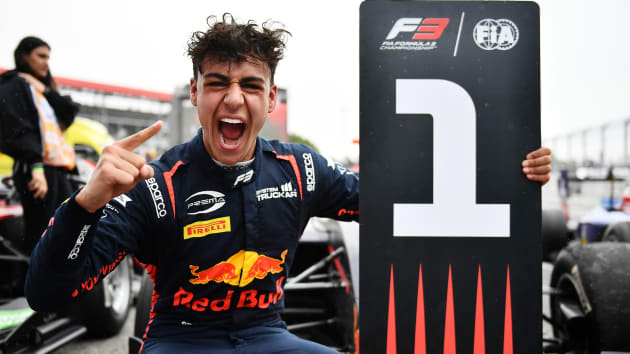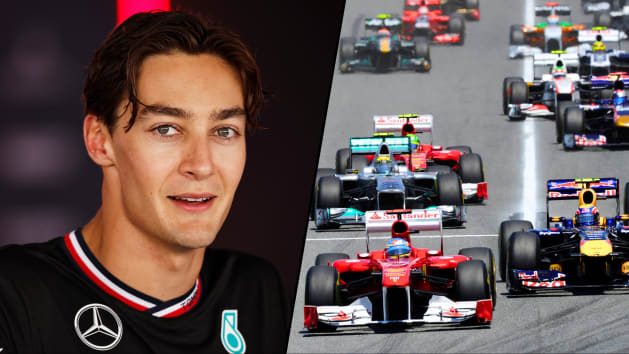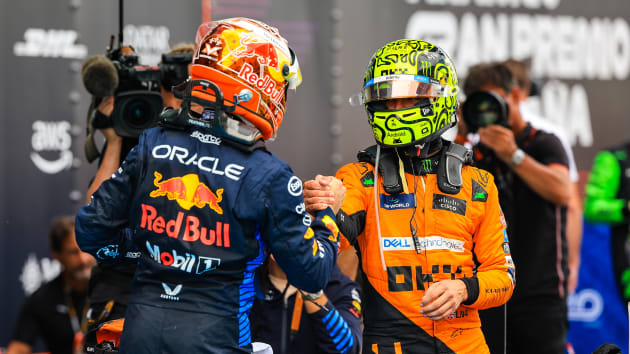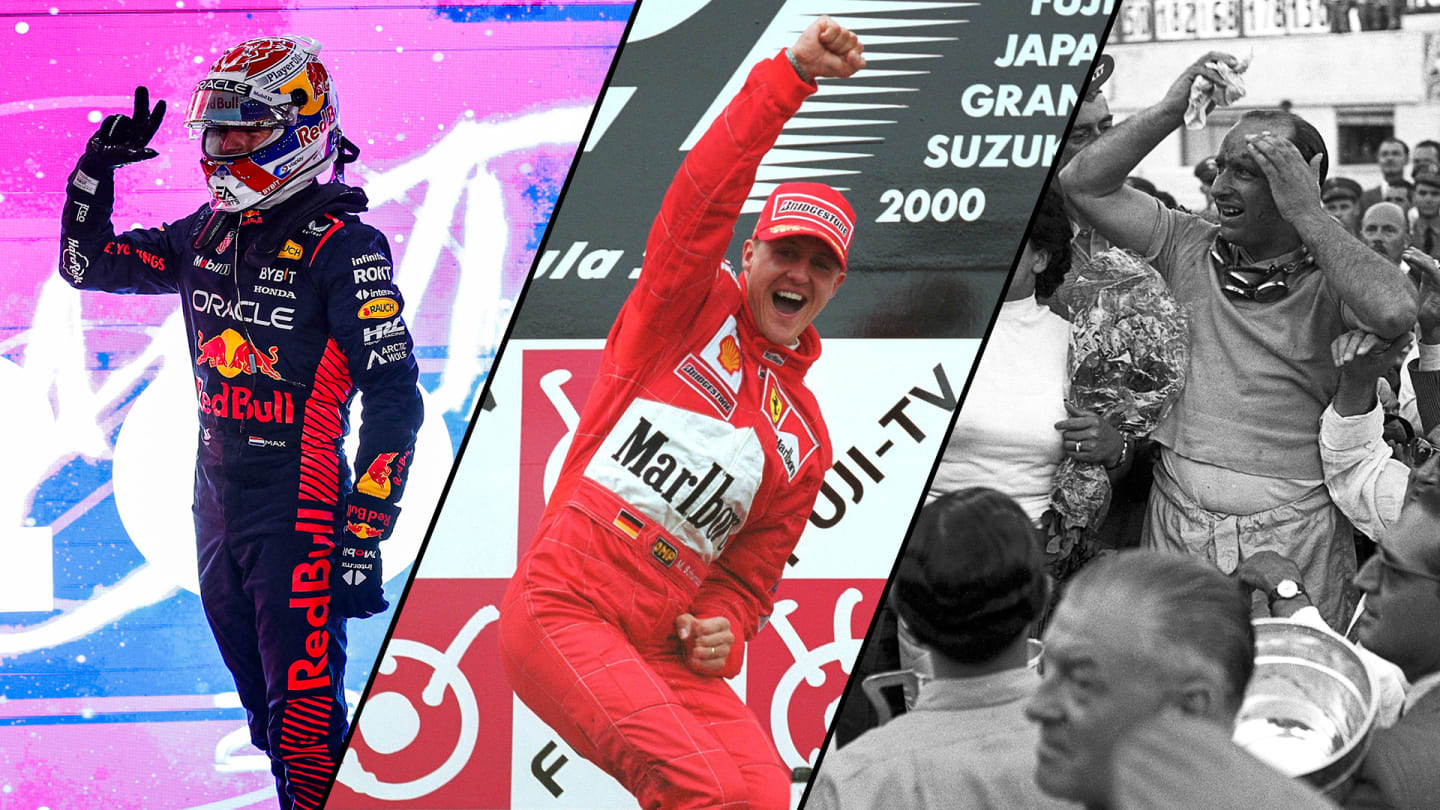
Feature
IN NUMBERS: How Verstappen compares to other F1 greats at this stage of his career

Staff Writer
Mike SeymourShare

Red Bull’s Max Verstappen rewrote the F1 record books during the 2023 season with an utterly dominant display en route to his third world title, while also topping up his victory tally to 54, podium finishes to 98 and pole positions to 32 – all after just 185 race weekends.
While comparing different eras is often a futile task and comes with a host of caveats for consideration, it nonetheless got us thinking in the F1 offices how Verstappen’s core numbers stack up at this point in his journey compared to the legends that have gone before him.
READ MORE: Verstappen names the three best wins from his record-breaking 2023 season
Focusing on the club of three-time champions Verstappen joined this year – and rather than looking at ages, given some debuted at a much younger age than others – we present how each driver compared after the same number of races, only covering titles, wins, poles and podiums, which are not impacted by fluctuations such as new points systems.
We’ve also slotted in percentages to help contrast against drivers who ended their illustrious careers after fewer Grands Prix due to shorter calendars and tragic accidents.
Max Verstappen
Stats after 185 race weekends*
3 world titles / 54 wins (29.1%) / 98 podiums (52.9%) / 32 pole positions (17.2%)
Verstappen made his debut in 2015, aged just 17, and it took little more than a year for the Dutchman to become a race winner when Red Bull promoted him from Toro Rosso. He’s stood on the top step of the podium in every season since and, in 2021, finally got his hands on a title-contending car.
READ MORE: ‘It’s eye-watering’ – Albon shares the secrets of Verstappen’s unique driving style
Since then, Verstappen has hit stratospheric numbers, winning 44 of the 66 Grands Prix held from that 2021 campaign to the one gone by in 2023, along with all three world titles. Still only 26, and committed to F1’s current dominant team through 2028, there should be plenty more to come.
It is also worth noting that, given the much longer calendar length today compared to previous generations, while Verstappen has been able to rack up win after win over the last few seasons, it means more races are passing by before world titles are secured.
*Excludes three pre-debut FP1 outings with Toro Rosso
Max Verstappen: The DNA of a Champion
Michael Schumacher
Stats after 185 race weekends
5 world titles / 67 wins (36.2%) / 118 podiums (63.7%) / 54 pole positions (29.1%)
Michael Schumacher caught the eye when he debuted for Jordan at the 1991 Belgian Grand Prix and was swiftly poached by Benetton, where the German collected his first podium finishes, race wins and world titles – the latter following some controversial incidents with Williams rival Damon Hill.
Schumacher then made the move to Ferrari in a bid to turn the once perennial title contenders into a leading force again and, after the drama of his disqualification in 1997 for barging into Jacques Villeneuve’s Williams, and having twice been beaten by McLaren’s Mika Hakkinen, the turn of the century brought the turning point driver and team had been pushing for.
By the time Schumacher had reached 185 race weekends – at the 2003 Monaco Grand Prix – he had five of his eventual seven world titles wrapped up (the sixth to follow that season), along with higher victory, podium and pole position tallies than Verstappen.
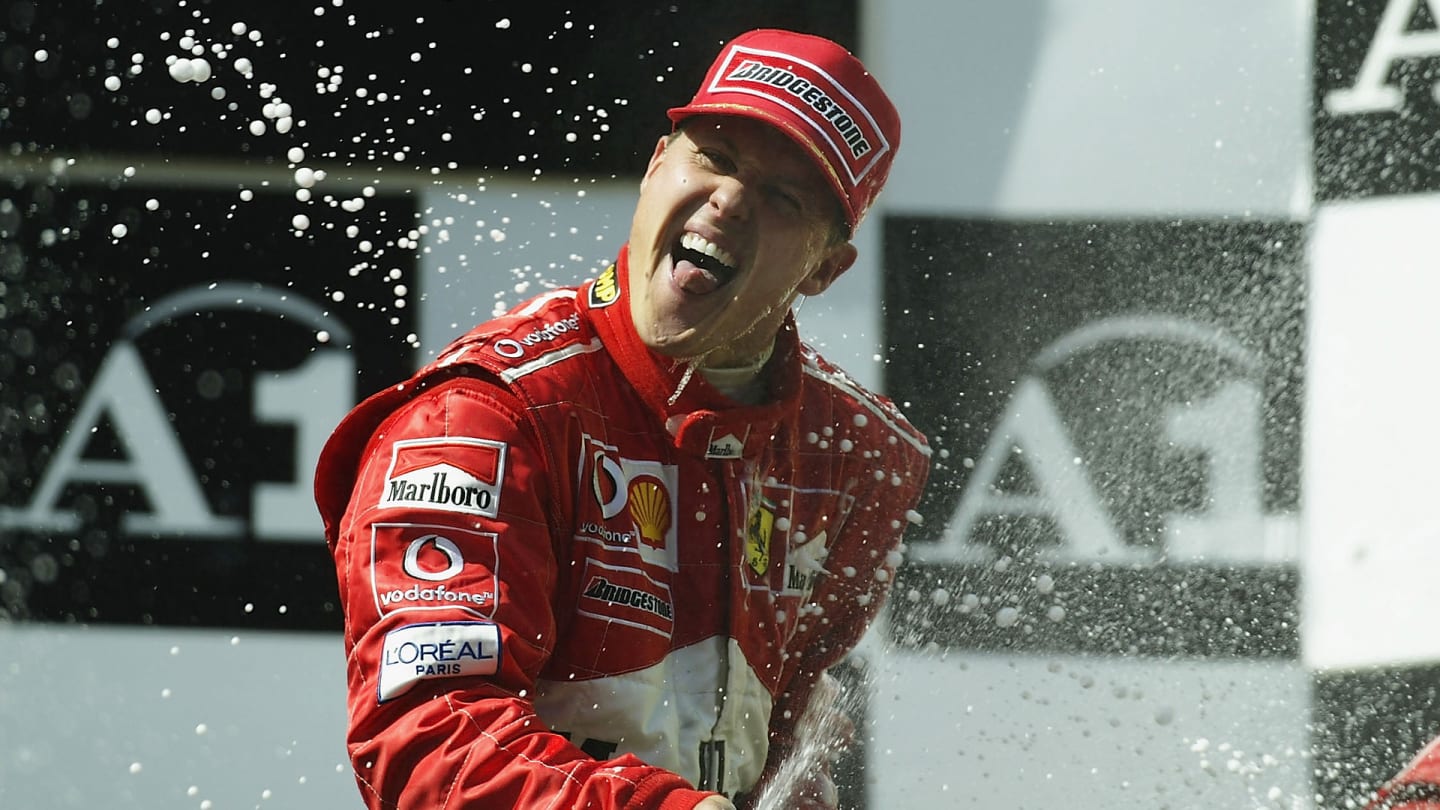
Schumacher was well on his way to legendary status after 185 race weekends
Sebastian Vettel
Stats after 185 race weekends*
4 world titles, 45 wins (24.3%), 92 podiums (49.7%), 47 pole positions (25.4%)
Sebastian Vettel is next on the list after his rapid rise from teenage debut sensation with BMW Sauber in 2007 to Toro Rosso race winner in 2008 and Red Bull front-runner in 2009, setting the scene for an incredible run of four successive championships from 2010 to 2013.
UNDERDOG TALES: When Vettel and Toro Rosso splashed their way to a sensational maiden win at Monza
After a difficult 2014 season amid the arrival of F1’s turbo-hybrid regulations, Ferrari lured Vettel away from Milton Keynes and the German racer battled to add further titles in red, but it was not to be. There were still pockets of success, though, with more wins, podiums and poles following.
By Monaco 2017, the first of two seasons in a row that he would finish runner-up to Mercedes’ Lewis Hamilton in the drivers’ standings, Vettel had taken 45 of his 53 career wins, 92 of his 122 podiums and 47 of his 57 pole positions.
*Excludes seven pre-debut FP1 outings with BMW Sauber
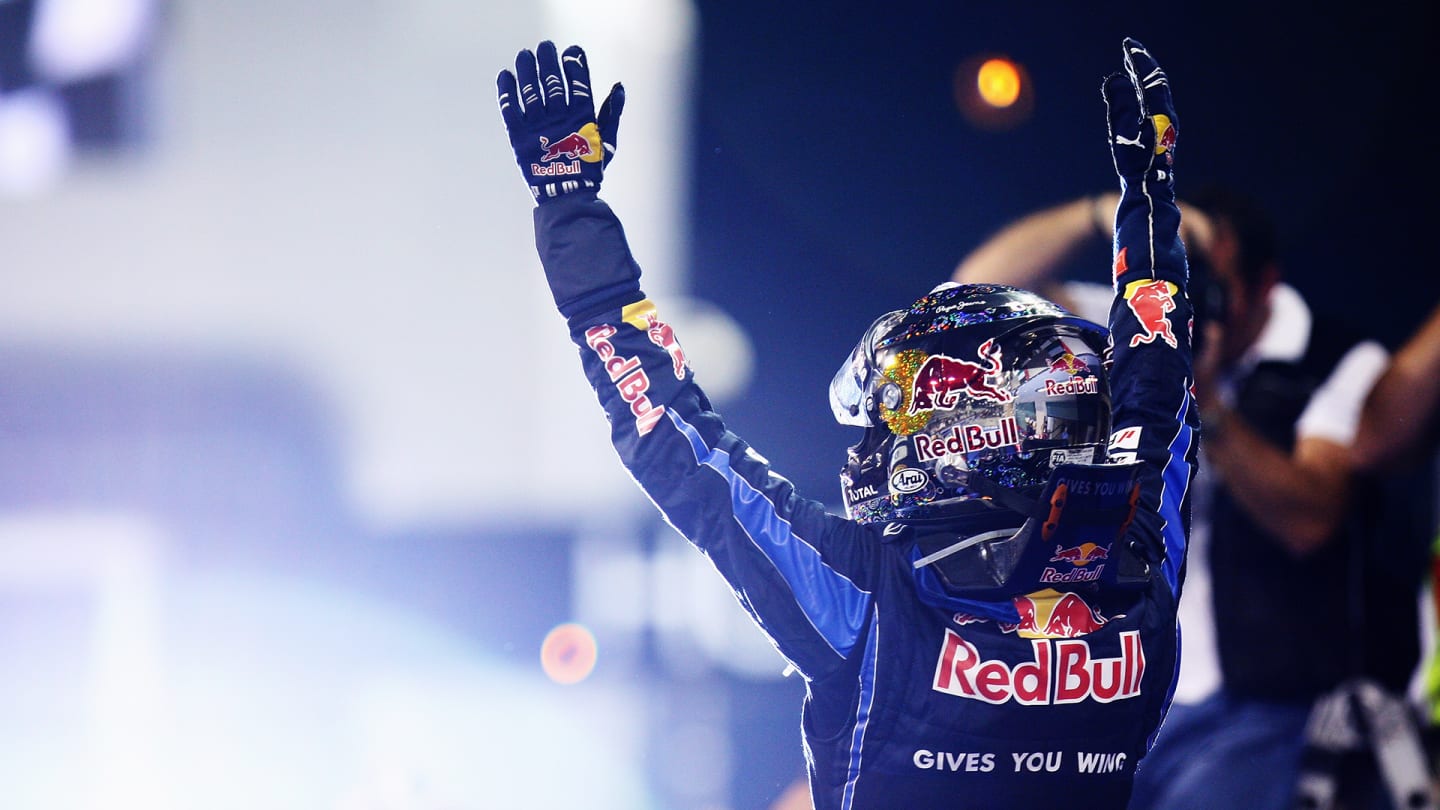
Vettel had one more world title than Verstappen after the same number of races
Lewis Hamilton
Stats after 185 race weekends
3 world titles / 50 wins (27%) / 101 podiums (54.5%) / 58 pole positions (31.3%)
Hamilton was another to burst onto the F1 scene as he starred alongside reigning two-time world champion Fernando Alonso during his rookie 2007 season at McLaren, scoring podium finishes, pole positions and race wins from the outset – and so nearly a world title.
READ MORE: 6 times the best F1 drivers and best cars combined to produce relentless brilliance
Hamilton dusted himself off and returned to take the 2008 crown, via a showdown with Ferrari’s Felipe Massa, but it would be his only championship for the Woking team, as when Mercedes came calling amid McLaren’s struggle to mount another title challenge, he took up their offer.
Hamilton and Mercedes got off to a steady start in 2013 with a handful of podiums and a breakthrough win, but their eyes were always on the turbo-hybrid era. It proved a masterstroke as the Silver Arrows stole a march on the field and, by Hamilton’s 185th race in Austin in 2016, he was already a three-time champion. Four more titles would follow from 2017 to 2020.
Top 10: Moments of Lewis Hamilton brilliance
Alain Prost
Stats after 185 race weekends
3 world titles / 44 wins (23.7%) / 94 podiums (50.8%) / 20 pole positions (10.8%)
Alain Prost became a podium finisher, race winner and title contender at Renault in the early stages of his career, but it was a return to McLaren – having made his F1 debut with them in 1980 – that triggered a flurry of wins and an initial brace of championship successes.
BEYOND THE GRID: Alain Prost on Ayrton Senna, his 1993 title – and almost rejoining Ferrari
At that point McLaren’s established number one, Prost was joined by rising star Ayrton Senna in the late 1980s and an infamous intra-team battle ensued. While he bounced back from defeat to the Brazilian to win the 1989 crown, the way it was settled sent Prost packing to Ferrari.
By race weekend number 185, at the 1991 Spanish Grand Prix, Prost had the vast majority of the F1 trophies he would pick up already safely stored in his cabinet, but a final switch to Williams and the sublime FW15C package earned the Frenchman seven more wins and a fourth title.
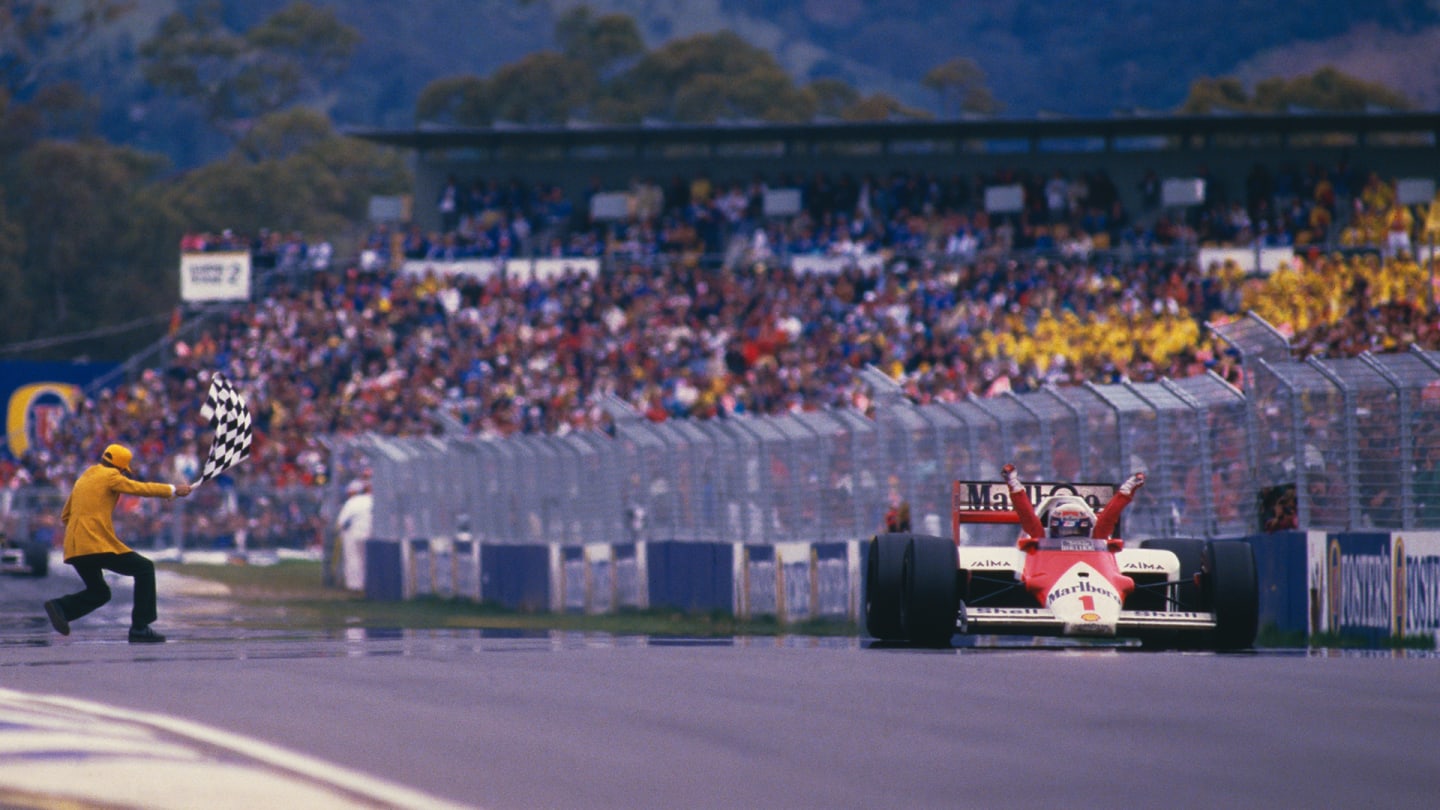
Prost kickstarted his F1 career with back-to-back titles for McLaren in the mid-1980s
Nelson Piquet
Stats after 185 race weekends
3 world titles, 20 wins (10.8%), 54 podiums (29.1%), 24 pole positions (12.9%)
Nelson Piquet emerged as a front-runner in 1980 as the Bernie Ecclestone-run Brabham team leapt up the order, and while one Williams got in their way that year, with Alan Jones emerging on top, the Brazilian beat the other of Carlos Reutemann next time out to bag his first championship.
READ MORE: Prost vs Senna, Mansell vs Piquet and more – F1’s fiercest team mate rivalries
Following a tricky 1982 campaign, Piquet and Brabham were back on form for 1983 and they edged out Renault rival Prost for title number two, but retirement-filled 1984 and 1985 seasons sent Piquet in Williams’ direction, where a fierce rivalry with team mate Nigel Mansell developed.
After a dramatic 1986 showdown, and with tensions between the Williams pair reaching boiling point, Piquet returned to title-winning ways in 1987 when a nasty qualifying crash at Suzuka forced Mansell to miss the last two races. It would be Piquet’s last F1 crown and, as he hit race 185 for Benetton in 1990, he had collected all bar three of his 20 wins.
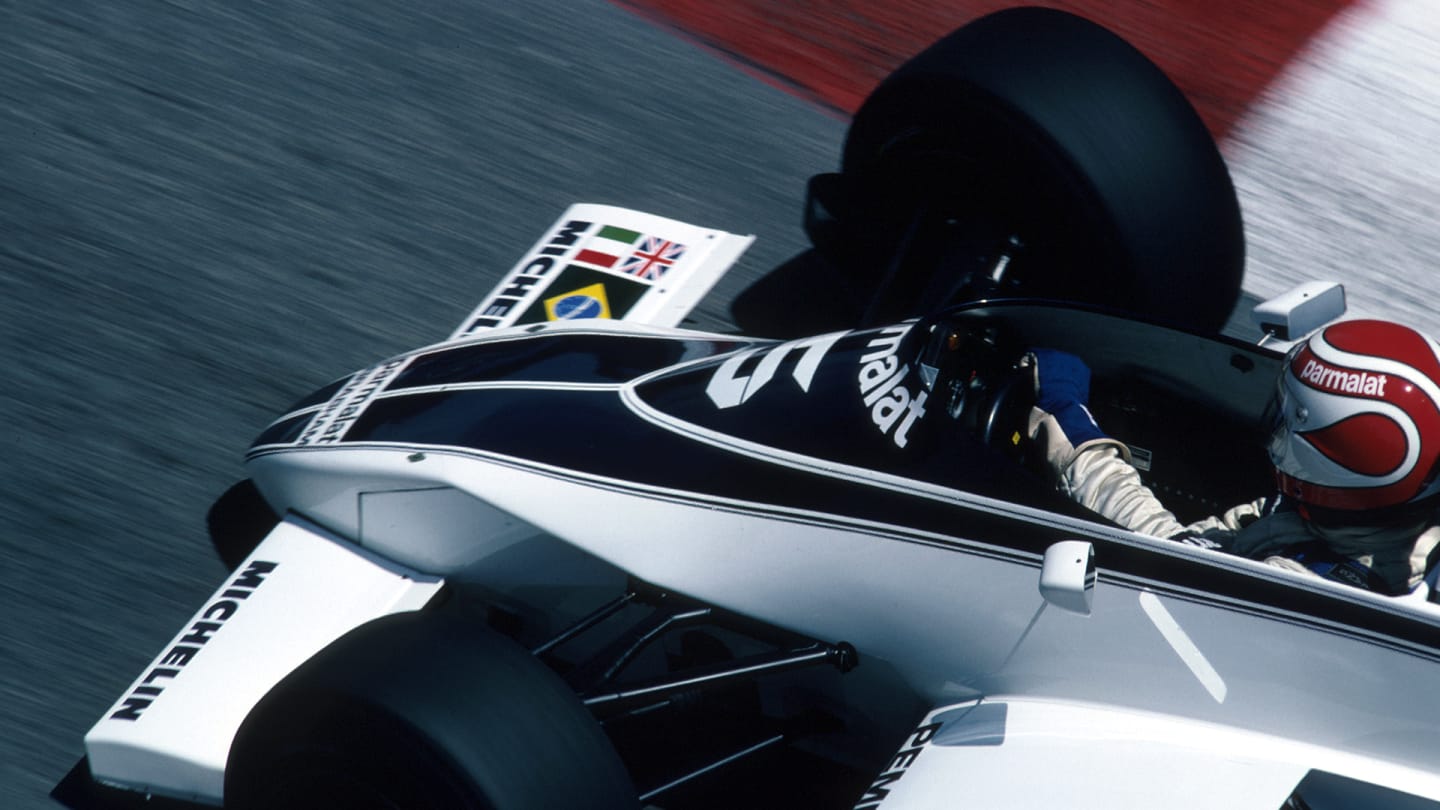
Piquet took his first podium finishes, race wins and world titles with Brabham
Three-time champions with fewer than 185 weekend appearances
Juan Manuel Fangio
Stats after 51 Grands Prix
5 world titles, 24 wins (47%), 35 podiums (68.6%), 29 pole positions (56.8%)
Juan Manuel Fangio remarkably won five world titles during eight F1 seasons across the 1950s. Adding another layer to his success, the Argentinian achieved them with several teams, claiming the 1951 title for Alfa Romeo, 1954 and 1955 for Mercedes (after recovering from a serious crash at Monza a couple of years earlier), 1956 for Ferrari and 1957 for Maserati.
At the end of it all, ‘El Maestro’ had won almost half of the Grands Prix he entered, finished on the podium in approximately two out of three races and started at the front of the grid more often than not – numbers that will take some beating by future generations.
Top 10 F1 Drives - 5 - Juan Manuel Fangio
Jack Brabham
Stats after 123 Grands Prix
3 world titles, 14 wins (11.3%), 31 podiums (25.2%), 13 pole positions (10.5%)
Jack Brabham’s title successes can be split into two phases: the first when he won a pair of championships with the innovative rear-engine Cooper in 1959 and 1960, and the second when he added a third with his own eponymous team in 1966 – making F1 history in the process.
Of all the three-time champions listed here, only Piquet has a lower victory percentage than Brabham, but in an F1 career that spanned some 15 years, the Australian delivered when it mattered. Indeed, he won five races on the bounce in 1960 and four in a row in 1966 to bag two of his three titles.
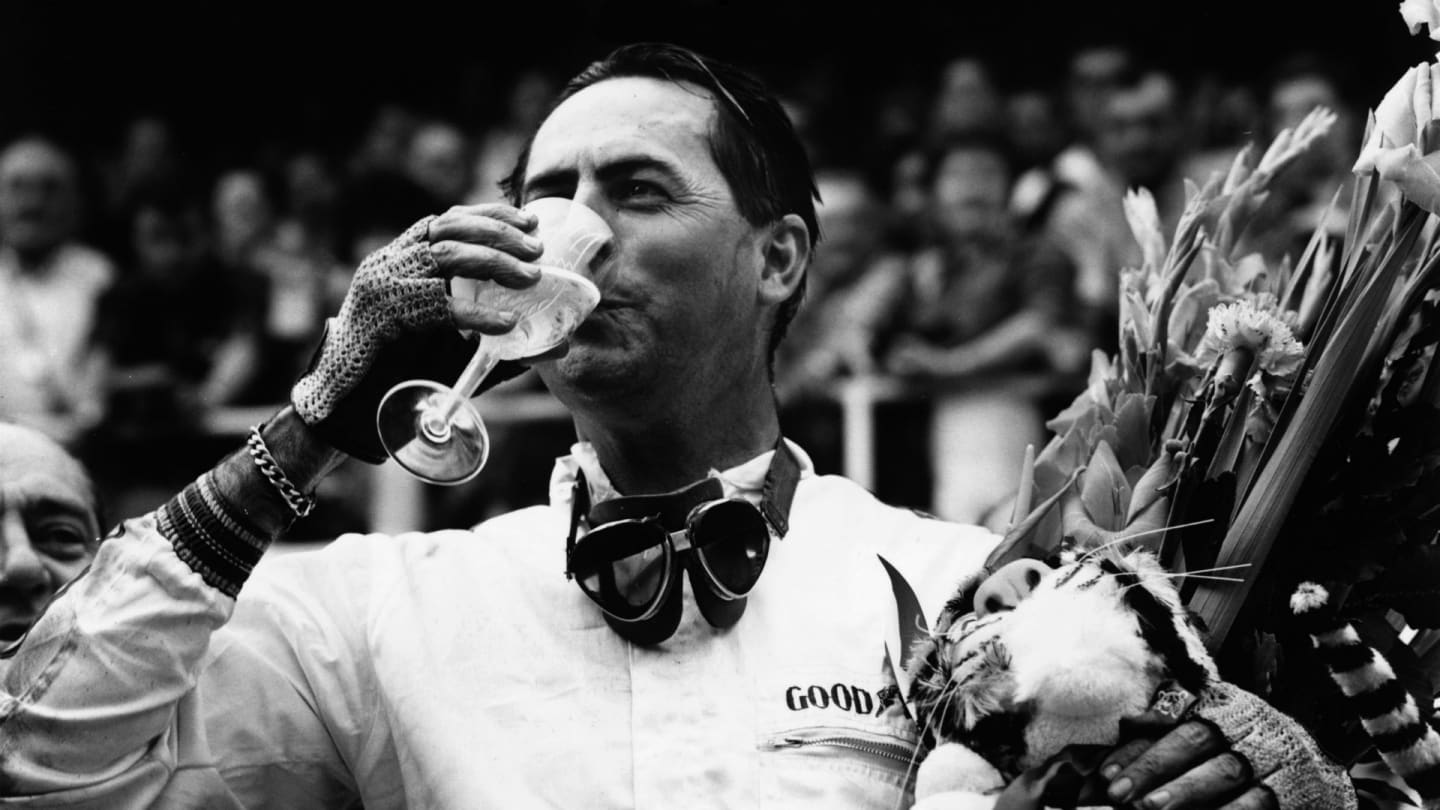
Brabham remains the only driver in F1 history to have won a world title in a car carrying their own name
Jackie Stewart
Stats after 99 Grands Prix
3 world titles, 27 wins (27.2%), 43 podiums (43.4%), 17 pole positions (17.1%)
Jackie Stewart debuted in F1 with BRM in the mid-1960s, making the podium in eight of the 12 races he finished across his first three seasons, including two victories, but it was a move to Matra/Tyrrell a couple of years later that sent his career to new heights.
BEYOND THE GRID: Sir Jackie Stewart on surviving and thriving in F1’s most ferocious era
From 1968 to 1973, the ‘Flying Scot’ claimed three world titles out six, while setting a then record of 27 wins, along with a podium conversion that still ranks among the best. Stewart retired ahead of what should have been a 100th race start following team mate Francois Cevert’s tragic accident at Watkins Glen.
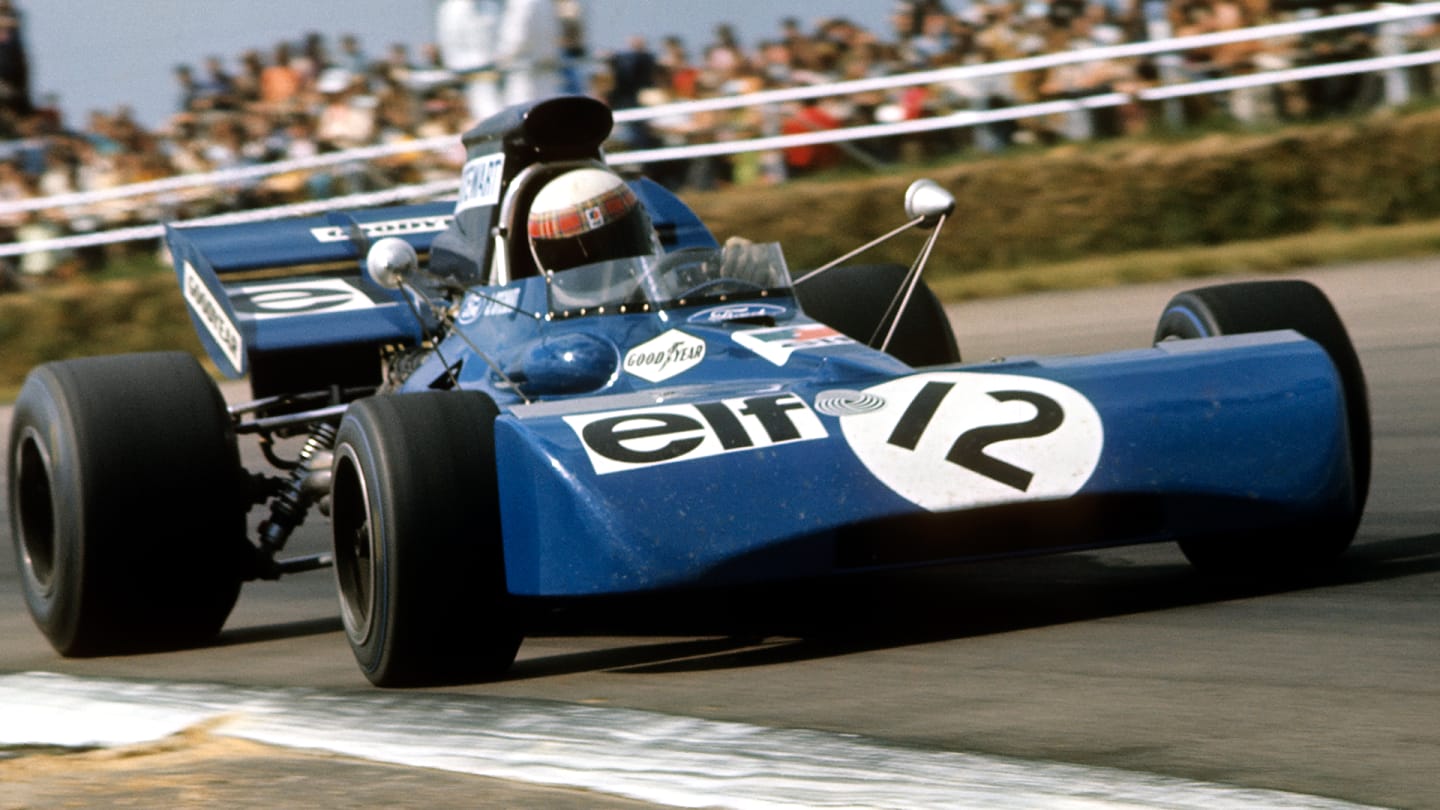
Stewart and Matra/Tyrrell were a potent combination in the late-1960s and early-1970s
Niki Lauda
Stats after 171 Grands Prix
3 world titles, 25 wins (14.6%), 54 podiums (31.5%), 24 pole positions (14%)
Niki Lauda started his F1 career in uncompetitive, unreliable machinery but his efforts at March and then BRM soon attracted the attention of Ferrari, with whom he became a race winner in 1974 and then a world champion in 1975.
Lauda was on course to do the championship double the following year before his fiery Nurburgring crash, which opened the door for McLaren rival James Hunt, but the Austrian came back stronger in 1977 to secure a second crown, even if relations with Ferrari had soured.
READ MORE: Wolff admits to missing Niki Lauda during difficult times for Mercedes
A move to Brabham brought a couple more wins but not another title challenge and, toward the end of the 1979 season, Lauda walked away from the sport. He would be tempted back by Ron Dennis and McLaren, though, and in 1984 a third title was his, along with a healthy total of wins, podiums and poles.
Niki Lauda - His remarkable career story
Ayrton Senna
Stats after 161 Grands Prix
3 world titles, 41 wins (25.4%), 80 podiums (49.6%), 65 pole positions (40.3%)
Ayrton Senna delivered one the most memorable underdog performances in F1 history to score his maiden podium as a Toleman rookie amid torrential rain at the 1984 Monaco Grand Prix, prompting Lotus to snap him up for 1985 in a deal that yielded the first of 41 race wins.
A move to McLaren in 1988 thrust Senna into the spotlight as he beat team mate Prost to the title in their first season as team mates then lost next time out via that Suzuka collision. Another controversial showdown followed in 1990, with Senna victorious after running into now Ferrari rival Prost, before a third and final crown came the following year.
Senna’s hopes of adding more titles and wins came to a tragic end when, having swapped McLaren for Williams, he suffered fatal injuries in a crash at the 1994 San Marino Grand Prix. But his percentages speak volumes, particularly in qualifying, with the Brazilian’s pole return behind only Fangio from the names above.
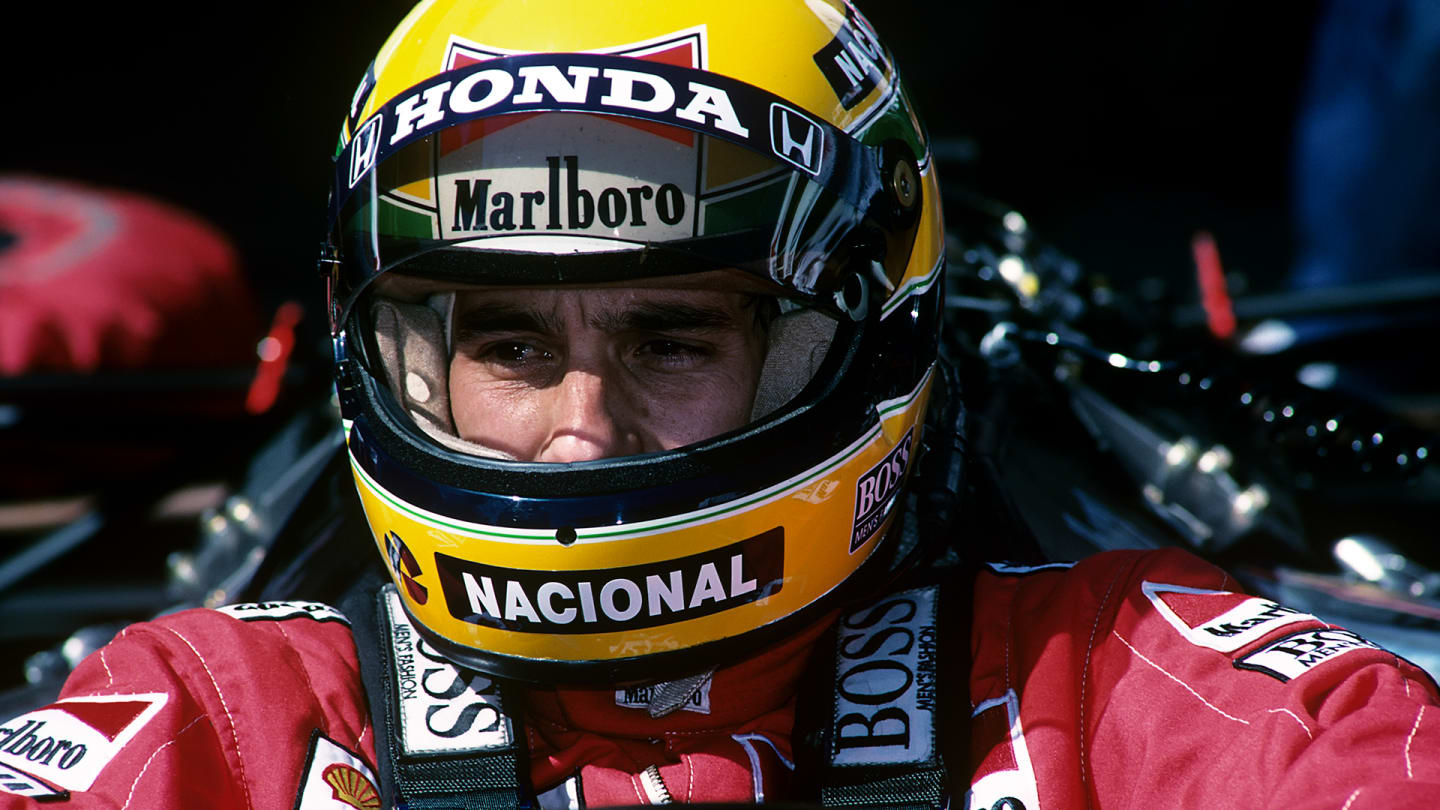
Senna holds one of the highest pole position percentages in the history of the sport
Other notable victory percentages outside the three-time champion club
While we have focused on Verstappen’s fellow triple champions in this piece, there are plenty of other drivers who deserve a mention for their core statistics, with some more tales of tragedy cutting impressive careers short.
Casting aside the one-off Indianapolis 500 winners who have skewed the record books, Alberto Ascari and Jim Clark sit second and third behind Fangio on the all-time race win percentage list, holding 40.6% (from 32 Grands Prix) and 34.7% (72 Grands Prix) respectively – both having suffered fatal accidents in their 30s.
WATCH: Jim Clark – Why F1’s quiet champion remains a legend
Luigi Fagioli (14.2%), Ludovico Scarfiotti (10%) and Jochen Rindt (10%) are other drivers with double figure victory percentages who lost their lives while competing.
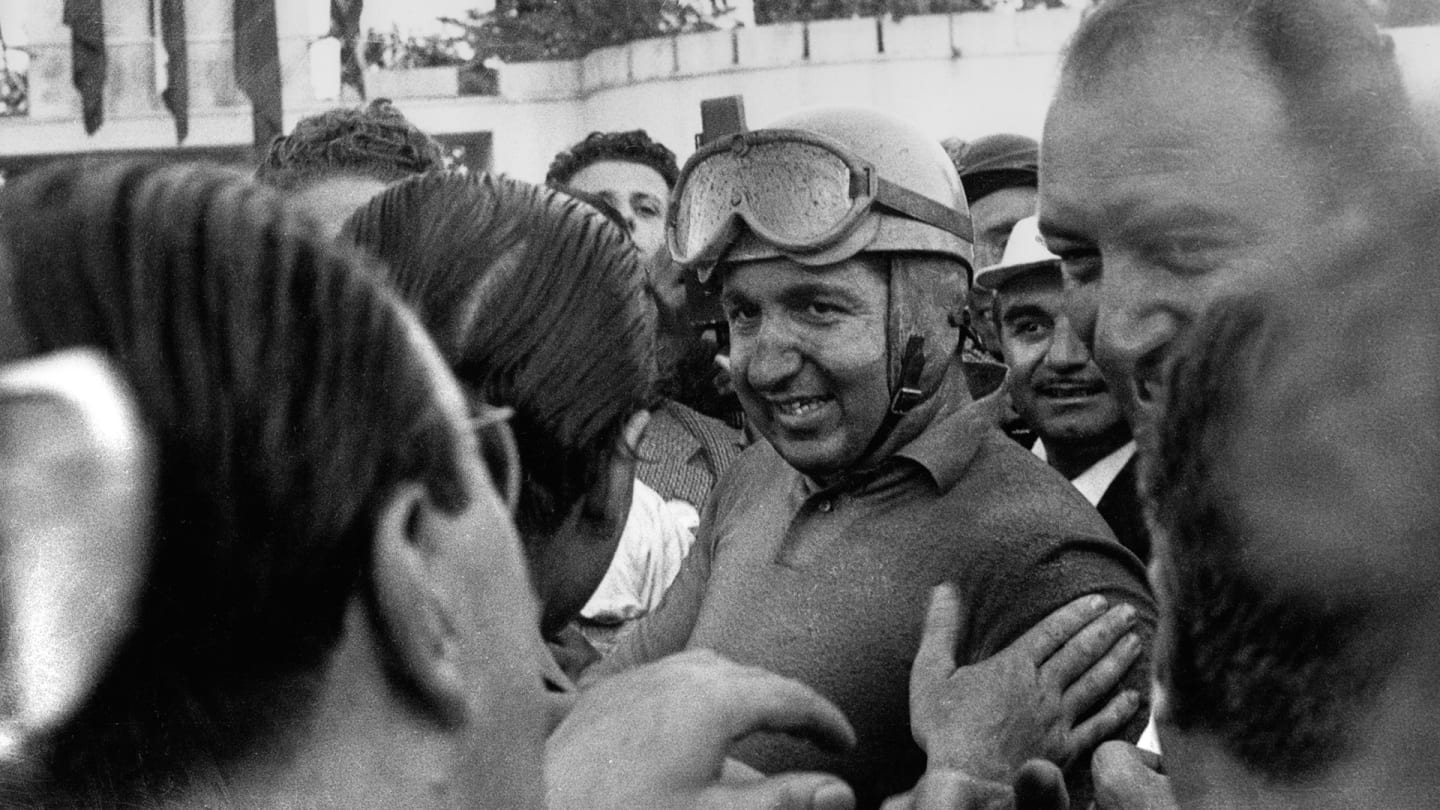
Ascari sits second to Fangio on the all-time list of F1 race win percentages
Fagioli died due to injuries sustained in a sportscar accident in Monaco in 1952 after just seven F1 races; Rindt was killed during a practice crash at Monza in 1970 but still posthumously won that year’s title; while Scarfiotti lost his life at a hillclimbing event in 1968, shortly after Clark had passed.
Meanwhile, Stirling Moss rounds out the top 10 thanks to victory in almost a quarter of the 66 Grands Prix he contested, with the likes of Damon Hill (19.1%), Nigel Mansell (16.5%), Tony Brooks (15.7%), Giuseppe Farina (15.1%), Mika Hakkinen (12.4%), Nico Rosberg (11.1%), James Hunt (10.8%) and Alan Jones (10.3%) also featuring highly.
As for some of Verstappen’s other current rivals, Alonso holds 32 wins from a record 378 starts, giving him an 8.5% return, with Valtteri Bottas (4.5%), Charles Leclerc (4%) and Daniel Ricciardo (3.3%) next on the list.
See below for a full breakdown of the all-time race winner percentages.
Top 25: F1 race wins by percentage
| Driver | Wins | Percentage |
|---|---|---|
| Juan Manuel Fangio | 24 | 47% |
| Alberto Ascari | 13 | 40.6% |
| Jim Clark | 25 | 34.7% |
| Lewis Hamilton | 103 | 31% |
| Michael Schumacher | 91 | 29.6% |
| Max Verstappen | 54 | 29.1% |
| Jackie Stewart | 27 | 27.2% |
| Alain Prost | 51 | 25.6% |
| Ayrton Senna | 41 | 25.4% |
| Stirling Moss | 16 | 24.2% |
| Damon Hill | 22 | 19.1% |
| Sebastian Vettel | 53 | 17.7% |
| Nigel Mansell | 31 | 16.5% |
| Tony Brooks | 6 | 15.7% |
| Giuseppe Farina | 5 | 15.1% |
| Niki Lauda | 25 | 14.6% |
| Luigi Fagioli | 1 | 14.2% |
| Mika Hakkinen | 20 | 12.4% |
| Jack Brabham | 14 | 11.3% |
| Nelson Piquet | 23 | 11.2% |
| Nico Rosberg | 23 | 11.1% |
| James Hunt | 10 | 10.8% |
| Alan Jones | 12 | 10.3% |
| Ludovico Scarfiotti | 1 | 10% |
| Jochen Rindt | 6 | 10% |
| *Excludes one-off Indy 500 winners |
YOU MIGHT ALSO LIKE
Report F3: Lindblad wins 100th race in Championship’s history in Barcelona
News ‘I channelled my inner Alonso!’ – Russell reflects on his remarkable rise from P4 to P1 in Spanish GP start
FeatureF1 Unlocked MONDAY MORNING DEBRIEF: Here’s how Norris could have won the Spanish Grand Prix
Report Verstappen just holds off Norris to win super-tight Spanish Grand Prix as Hamilton claims first podium of 2024

